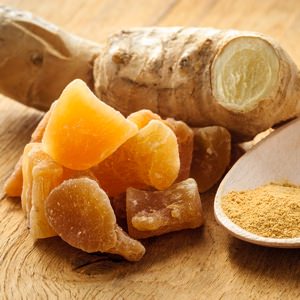
Irritable bowel syndrome (IBS) is common and challenging to treat. People who have IBS may feel incredibly frustrated because often doctors tell them there is no observable problem. All the same, they often suffer symptoms including abdominal pain, cramping, bloating, flatulence, diarrhea or constipation. and we do mean suffer!
How Does Diet Affect IBS?
Gastroenterologists used to think that irritable bowel syndrome was mostly psychosomatic. (There’s more information below on talk therapy for this condition.) However, evidence now shows that some people do well when they eliminate easily fermented foods from their diets (Gut, Nov. 22, 2021). This approach, known as a low-FODMAP diet, helps some people but not everyone. To learn why, researchers conducted a month-long study in 41 people with IBS and their healthy household contacts. The investigators analyzed the subjects’ gut microbiota at the beginning of the study and after a month on the low-FODMAP diet.
People who responded well to the low-FODMAP diet started the study with a more pathogenic microbial signature in their intestines. Specifically, their bacteria were less diverse, and they had more Firmicutes family bacteria that can cause disease. In addition, they had fewer beneficial Bacteroidetes species. Following the diet resulted in a better balance of gut microbes as well as fewer symptoms of IBS.
In summary, the scientists suggest that one important outcome of the study is
“The potential development of a microbiota signature as a biomarker to manage IBS cases with a low FODMAP diet recommendation.”
Low-FODMAP Diet:
Previous research also showed that a low-FODMAP diet may help ease symptoms of irritable bowel syndrome (American Journal of Clinical Nutrition, June 2021). FODMAP stands for Fermentable Oligosaccharides, Disaccharides, Monosaccharides, And Polyols. While humans may not digest them well, intestinal bacteria do. As a result of bacterial fermentation activity, however, certain individuals experience excess gas when they consume these foods. Despite the appeal of fewer symptoms, eliminating FODMAPs means missing out on some healthful foods, such as wheat, rye, legumes, garlic, onions, milk, yogurt, figs, mangoes or blackberries.
A study in China recruited more than 100 people with IBS and asked them to follow either a traditional or a low-FODMAP diet. Those who followed the low-FODMAP diet for three weeks had fewer symptoms and fewer carb-fermenting bacteria.
There is growing interest in the dietary management of IBS. Although this study suggests that diet can make a difference, telling everyone who may have this condition simply to avoid whole grains, fruits, vegetables and dairy products would impoverish their diet. Moreover, carbohydrate-fermenting bacteria are usually considered important elements of the microbial ecosystem. Consequently, we’ll be watching for more targeted dietary interventions that can improve symptoms.
Ginger Can Ease Irritable Bowel Syndrome:
Q. I just read your article about irritable bowel syndrome, IBS. I’m surprised you didn’t mention ginger.
My IBS started in my 20s. I’m now 69. I tried everything with no success until I tried ginger tea. It was life changing for me.
Now I have ginger tea and ginger candy every day. I can finally start my day without spending hours in the bathroom. It took a lot of research to take back control of my life and this works for me.
A. You are not the only person who has reported benefit with ginger. A review of foods and supplements that might be beneficial in easing symptoms of IBS mentions kiwifruit, mint and ginger for “the alleviation of symptoms associated with FGID (functional gastrointestinal disorders)” such as IBS (Nutrition Reviews, June 22, 2024).
Research published in BMC Complementary Medicine and Therapies (Sept. 14, 2020) confirms that “Ginger or ginger extracts have been used in traditional medicine to relieve pain caused by diarrhea predominant irritable bowel syndrome (IBS-D).” It works by calming inflammation.

Three kinds of ginger – ground spice fresh and candied on rustic table. Healthy eating home remedy for nausea upset stomach colds.
Other Natural Approaches for Irritable Bowel Syndrome:
Q. Are there any natural treatments for IBS? I think they should call it cranky colon or irritable intestine or something alliterative. Sadly, I’ve had it for several years and there is little to be done for it. I have occasionally had painful rectal spasms so intense I pass out.
Doctors don’t have anything to offer, and I am tired of this socially unacceptable ailment. Do you know of anything I could try?
Try Peppermint:
A. Research suggests that peppermint can ease spasms in smooth muscle, especially the digestive tract. Enteric-coated peppermint oil has been helpful for people with IBS in some trials (Journal of Clinical Gastroenterology, July 2014). As a result, it might be worth a try.
Peppermint Plus Offers Relief:
Q. I have been suffering with irritable bowel syndrome for a few years. Now I’ve got a product that works wonders for me. It’s all natural and contains peppermint, fennel and ginger. Others might like to know.
A. Thank you for the tip. All three of these herbs have a reputation for easing digestive discomfort.
There is also recent research supporting their use. For example, a review of Mediterranean herbs suggests that ginger, lavender, turmeric, calendula, thyme, rosemary and blueberry all have the potential to help digestive disorders (Open Life Sciences, April 18, 2024). A Japanese study showed that enteric-coated peppermint oil relieves symptoms of irritable bowel syndrome (Biopsychosocial Medicine, Feb. 8, 2024).
In addition, a group of French and Swiss primary care physicians polled over 1,000 patients about their use of home remedies. They found that 80 percent of them consider fennel tea helpful for stomach ache (Family Practice, April 13, 2023).
Probiotics May Help Irritable Bowel Syndrome:
People with IBS often benefit from taking beneficial bacteria called probiotics. You have probably seen these advertised as capsules or in foods.
We heard from a reader who reported that probiotics helped his IBS:
“While I’m not cured, the symptoms are now much easier to handle.”
A systematic review covered 11 randomized controlled trials and concluded
“that multi-strain probiotics supplemented over a period of time have the potential to improve IBS symptoms” (Nutrients, Sep. 2, 2019).
Multi-strain probiotics evaluated included species of Lactobacillus and Bifidobacterium as well as Streptococcus thermophilus. Yogurt or kefir with live cultures may offer these strains and might prove beneficial.
Soluble Fiber Is an Option:
Soluble fiber such as that found in oats, barley, beans and psyllium can help control symptoms (American Journal of Gastroenterology, Sep. 2014). Of course, people following a low-FODMAP diet will exclude some foods rich in soluble fiber. Using a psyllium supplement may make sense to start with. Over the long term, a dietitian with experience helping those with irritable bowel symptoms might provide guidance.
Don’t Dismiss Talk Therapy for IBS:
Cognitive behavioral therapy can help a range of conditions from depression to insomnia. A small study showed that this type of targeted talk therapy might also improve symptoms of irritable bowel syndrome. Patients who responded well within the first four weeks of treatment were especially likely to maintain their favorable response (Clinical Gastroenterology and Hepatology, May, 2010).
Many people with IBS have noticed that their symptoms may worsen when they are under stress. No one can avoid stress completely, but this may help explain why cognitive behavioral therapy seems to ease symptoms. On the other hand, doctors might be putting the cart before the horse. New research suggests that mast cell activation (a type of immune response related to allergies) may trigger both IBS symptoms and psychological distress (Journal of Inflammation Research, April 14, 2021).
Citations
- Vervier K et al, "Two microbiota subtypes identified in irritable bowel syndrome with distinct responses to the low FODMAP diet." Gut, Nov. 22, 2021. DOI: 10.1136/gutjnl-2021-325177
- Zhang Y et al, "Low fermentable oligosaccharides, disaccharides, monosaccharides, and polyols diet compared with traditional dietary advice for diarrhea-predominant irritable bowel syndrome: a parallel-group, randomized controlled trial with analysis of clinical and microbiological factors associated with patient outcomes." American Journal of Clinical Nutrition, June 2021. DOI: 10.1093/ajcn/nqab005
- Liu T et al, "The effectiveness and safety of natural food and food-derived extract supplements for treating functional gastrointestinal disorders-current perspectives." Nutrition Reviews, June 22, 2024. DOI: 10.1093/nutrit/nuae047
- Zhang C et al, "Ginger relieves intestinal hypersensitivity of diarrhea predominant irritable bowel syndrome by inhibiting proinflammatory reaction." BMC Complementary Medicine and Therapies, Sept. 14, 2020. DOI: 10.1186/s12906-020-03059-3
- Khanna R et al, " Peppermint oil for the treatment of irritable bowel syndrome: a systematic review and meta-analysis." Journal of Clinical Gastroenterology, July 2014. DOI: 10.1097/MCG.0b013e3182a88357
- Kmail A, "Mitigating digestive disorders: Action mechanisms of Mediterranean herbal active compounds." Open Life Sciences, April 18, 2024. DOI: 10.1515/biol-2022-0857
- Matsueda K et al, "Efficacy and safety of peppermint oil for the treatment in Japanese patients with irritable bowel syndrome: a prospective, open-label, and single-arm study." Biopsychosocial Medicine, Feb. 8, 2024. DOI: 10.1186/s13030-024-00302-y
- Sebo P et al, "Use and perceived effectiveness of non-pharmacological home remedies for digestive symptoms: a questionnaire-based survey among primary care patients." Family Practice, April 13, 2023. DOI: 10.1093/fampra/cmad046
- Dale HF et al, " Probiotics in Irritable Bowel Syndrome: An up-to-date systematic review." Nutrients, Sep. 2, 2019. DOI: 10.3390/nu11092048
- Moayyedi P et al, "The effect of fiber supplementation on irritable bowel syndrome: a systematic review and meta-analysis." American Journal of Gastroenterology, Sep. 2014. DOI: 10.1038/ajg.2014.195
- Lackner JM et al, "Rapid response to cognitive behavior therapy predicts treatment outcome in patients with irritable bowel syndrome." Clinical Gastroenterology and Hepatology, May, 2010. DOI:https://doi.org/10.1016/j.cgh.2010.02.007
- Chao G et al, "Research on correlation between psychological factors, mast cells, and PAR-2 signal pathway in irritable bowel syndrome." Journal of Inflammation Research, April 14, 2021. DOI: 10.2147/JIR.S300513

